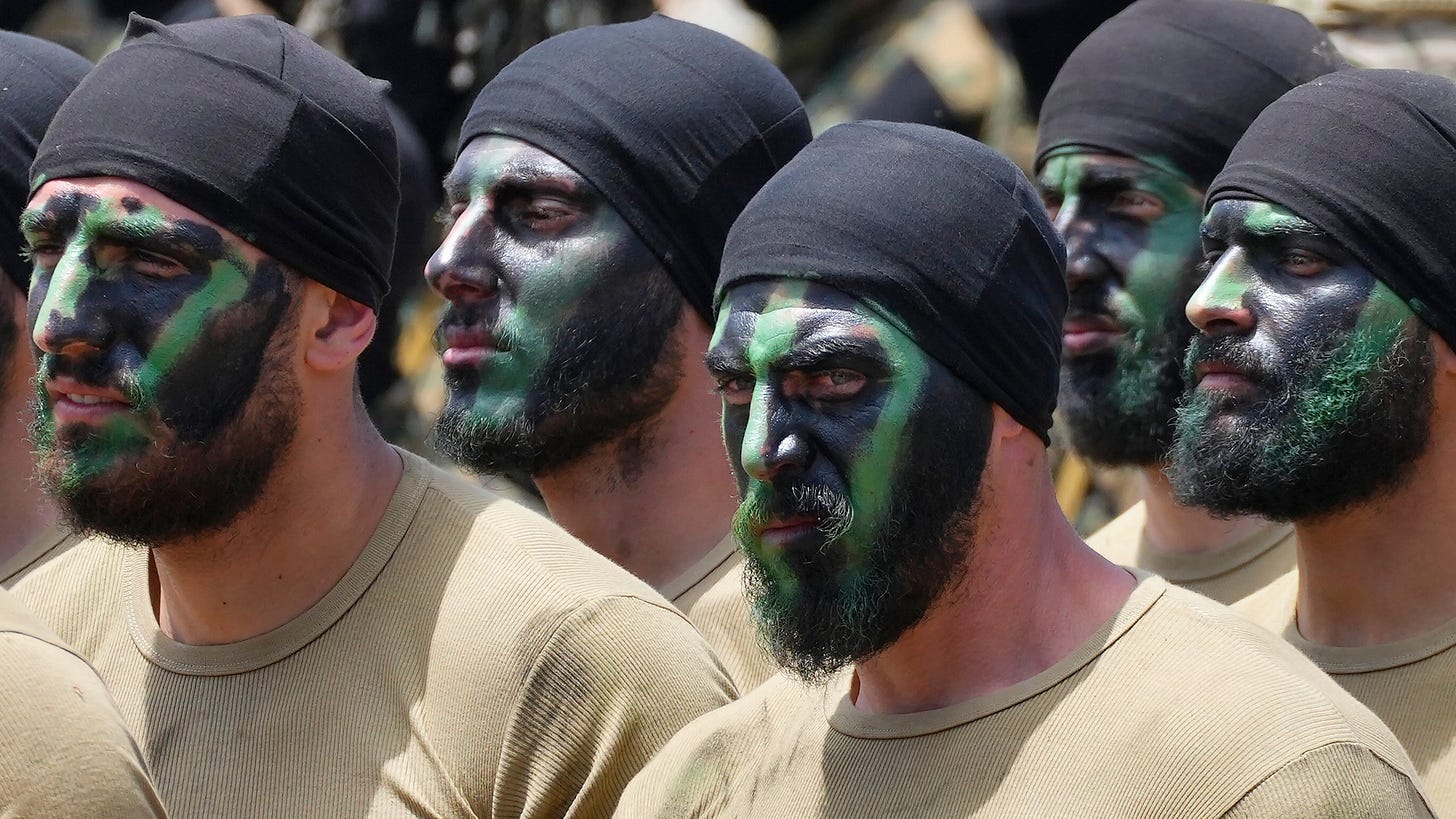Amongst much of the world’s media lies a serious ignorance surrounding Hezbollah’s strength as a resistance force and its existence following the assassination of Hassan Nasrallah, the toppling of the Assad Government, and the collapse of Syria.
For most of the media and the “informed” geopolitical analysts, these two events have spelled the death knell for Hezbollah. Their thinking is as much delusional as it is naïve. Unfortunately, being paid to read from the same script breeds an intellectual malaise that should frighten everyone.
The portrayal of Hezbollah as a waning force in Lebanon, politically and militarily, isn’t only wrong but reflects a serious misunderstanding of the group’s resilience and the broader geopolitical dynamics in the region.
While the narrative of Hezbollah’s decline might align with certain political hopes, the realities on the ground tell a very different story. Far from being “decimated” or rendered irrelevant, Hezbollah continues to operate as a formidable entity with enduring regional influence, which is why this assessment warrants closer scrutiny.
Israel’s strategy of decapitating Hezbollah’s leadership has always proven historically ineffective in dismantling the organisation. Hezbollah has consistently demonstrated its ability to replace leaders, adapt its tactics, and maintain operational continuity. How Hezbollah is structured is designed to withstand assassinations—decentralizing command systems and cultivating highly trained individuals capable of assuming leadership roles at any time.
Decapitation strikes might temporarily throw a spanner in the works operationally, but they haven’t, and won’t, lead to the collapse of Hezbollah.
Hezbollah’s military capabilities are designed to be robust despite years of Israeli operations. They’ve come to understand that the existence, operational strength, and functioning of their operations should not fall on the shoulders of one man but on all Hezbollah operatives.
To believe Hezbollah is politically neutered ignores the group’s entrenched position within Lebanon’s political fabric. It’s true Lebanon’s economic collapse and widespread public discontent have eroded confidence in all political factions; however, Hezbollah retains significant support, particularly among Shia communities in southern Lebanon and throughout the Bekaa Valley. Hezbollah’s support isn’t solely ideological; it’s tied to providing social services, healthcare, and education—areas where the Lebanese Government has failed.
Furthermore, Hezbollah’s alliances within Lebanon’s fragmented political system enable it to wield influence far beyond its own constituency. Its role as a power broker in Lebanese politics ensures that it cannot simply be sidelined, no matter how much its opponents wish otherwise.
Comically disturbing, though, is the belief—through the rhetoric of the global media—that the overthrow of al-Assad and the instability in Syria have severed Hezbollah’s supply lines from Iran. It’s a simplistic interpretation of reality.
There’s no denying the overthrow of al-Assad has disrupted traditional routes; however, Iran has consistently demonstrated its ability to adapt and sustain its support for Hezbollah. Through innovative logistical networks, including air and maritime routes, Iran continues to supply Hezbollah with weapons, funds, and training. The idea Iran will fail to sustain its support for Hezbollah underestimates its strategic commitment to its regional allies.
Furthermore, the idea that Hezbollah’s operational effectiveness hinges entirely on Syrian stability is flawed. The group’s strength derives not just from Iranian support but also from its own extensive networks. Hezbollah’s ability to weather years of international pressure and military campaigns underscores its strategic depth and adaptability.
The recent US-brokered ceasefire, aimed at halting hostilities, shouldn’t be misconstrued as a sign of Hezbollah’s weakness or Israel’s triumph even though it was a ceasefire of deceit and a rescue mission to save the IDF from annihilation. Instead, it reflects the strategic limitations of Israel’s military campaign and the growing international concern over escalating violence. The IDF’s inability to decisively defeat Hezbollah—or even significantly degrade its operational capacity—has been evident in every major conflict since 2006.
Hezbollah’s endurance is emblematic of a geopolitical reality: the limitations of military solutions to complex political problems. Israel’s strategy of military dominance and the US’s approach to regional politics have consistently failed to address the causes of instability and resistance. Hezbollah’s ongoing relevance underscores the persistence of these unresolved issues, from the Israeli occupation of Palestinian territories to the broader disenfranchisement of Arab populations.
Far from signalling a “rising hope,” the narratives of Hezbollah’s decline and the purported end of exiles like Sydney-based medico Jamal Rifi distract from the systemic challenges that underpin Lebanon’s crises.
The focus on individual cases and symbolic victories do little to address the enduring structural issues—economic collapse, political paralysis, and external interference—that define Lebanon’s predicament.
The global media’s analysis of Hezbollah’s supposed decline reflects a misreading of its internal dynamics and the external factors shaping its trajectory.
Hezbollah remains a resilient and adaptive force, deeply embedded in Lebanon’s political and social landscape. Its continued relevance underscores the failure of military strategies and simplistic geopolitical narratives to achieve meaningful change in the region.





My pleasure Ethel
Your column invites an interesting historical parallel, which is also tinged with irony, since we are in the middle of Chanukah: << Israel’s strategy of decapitating Hezbollah’s leadership has always proven historically ineffective in dismantling the organisation. >>
How strange that they don't understand this, given their own history. During the rebellion against the Seleucids, Mattathias and all five of his sons lost their lives. When the patriarch died, his third son, Judah took control, but he was slain at the Battle of Elasa. Two others fell, before Jonathan and Simon founded the Hasmonean dynasty, and the latter pair were also killed as the struggle continued (Simon, treacherously, by his son-in-law). Ultimately, however, the Hasmoneans prevailed (with some help from Rome).
In other words, the death of a leader -- even the legendary Judah Maccabee -- did not end the uprising. Why do Netanyahu & Co. assume that the death of a Hezbollah leader will precipitate the destruction or implosion of that group?